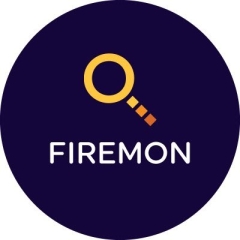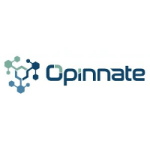What is our primary use case?
We use FireMon for compliance reporting. Also, because it provides a roadmap for us to start doing workflow automation - not to be confused with other forms of automation that occur in the firewall realm - we use it to see the processes and procedures that we can automate and enforce. These include approval processes, review processes, and pre- and post-implementation validation.
How has it helped my organization?
Any organization will have a best practice of looking at their firewalls at least once a year, going line-by-line. But whenever we have something like a PCI assessor coming in, we want to make sure we do our due diligence. We want to look at anything that has popped up, or that we might be unaware of, or that we put on the back burner, because it's impactful to the business. We can't really do that unless we can query our environment or set it up to keep us informed of everything that conflicts with our best practices. That's where we get the great majority of the value out of the product.
One of the most concrete examples of how it has helped our organization - and it's not the most spectacular example - is that with Security Manager specifically, we have the ability, as security engineers, to review and approve firewall rules before they are implemented, even though that task is performed by our networking engineers. What that allows us to do is maintain a separation of duties, which is very important for a lot of compliance checks. I can't be the person who makes a rule and the person who says that the rule that I just made is okay and up to standards. There's a conflict of interest there.
So one of the main things that adds value or improves the security posture of our environment is the ability to separate roles and responsibilities. As part of our processes, I can say to the networking team, "Submit to me what it is that you're planning on doing." Using FireMon, I can look at the firewall and the firewall rule without having to have access to the actual firewall. After they are done with their change, I can validate that what I said they could do matches what they actually did do. Having that mechanism as an option in our environment holds everyone up to a higher level of best practices, because they know someone can validate that they're not just doing whatever they want to do without anybody being the wiser about it.
The solution helps to close a visibility gap we previously had. That goes back to reemphasizing the fact that we're trying to maintain that separation between security engineers and network engineers. I don't want access to the firewalls themselves, but I am accountable for every rule that's on them. Everything we do goes through FireMon. Is it instrumental in my being able to see something and correct it? Absolutely.
Because of FireMon, we have found several instances of objects that were created where the intent was for it to be four ports, but it got fat-fingered and someone put in a much wider port range. It has helped us to identify misconfigurations. It has helped us to identify out-of-band changes, where stuff was done that wasn't necessarily approved. Because it has its own repository of industry best-practices, it has helped us to highlight hundreds of rules that have unwanted objects in them. If I don't have to spend two days walking through all of our firewalls to do that, and I can run a report that I know is pulling back authoritative information, then I'm able to accomplish more because of it.
It certainly helps reduce our overall auditing time. The alternative to not having the product is doing a manual review. What the product is designed to do is to show me everything that violates this standard or that rule. If I can do that - and even if I have to spend a day or two coming up with standards and the rules for me to check against - in two days I have the results that a manual process would take me several weeks to achieve. Now, cleanup still takes just as long. I can't say, "Fix all of these," and it automatically cuts tickets for me - yet. With proper future-proofing, optimization, and integration, it would be able to do that for us as well. But overall, it definitely helps reduce auditing time.
Another advantage is that is has helped to clean up rules that have not been reviewed in several years. There are thousands of rules every year that we clean up directly, based off of the reports.
To give more context to this answer, one of the main functions of anyone in security is: If we don't need it, we need to get rid of it. But there's always that battle between the needs of enforcing best practices and accommodating the business. Anyone who has ever used this solution, or competitors' solutions, or gone through a firewall cleanup process, has experienced this scenario: "Well, we deleted 300 rules and something broke and now we need to find out which of those rules we need to turn back on." And that happened because they were working from a report that they only ran once a month or once a quarter. What this tool allows me to do is not only disable unused rules, but to specify conditions like, "anything that is unused for at least six months, or at least a year." I can now put unused rules into different categories. Something hasn't been used in a year is very low risk. If it was used two months ago, there's a higher risk if I disable it. So it helps reduce potential impact, which is a unique feature.
What is most valuable?
The most valuable feature is the reporting capability because everything that we do is a result of our being able to query a report, based on our environment and our PCI compliance efforts.
What needs improvement?
The current health and monitoring of the devices is atrocious. I know of several engineers within the company to whom I've mentioned this to and they say, "I know, I've been telling the devs that." They would back me up on my statement.
Here's the bad part, and it's hard to articulate without having like a visual that you and I are sharing. But imagine you have a list of 200 devices, and you can grade each of those devices as either green, yellow, or red. However, there might be three different reasons for you to go to red, or eight different reasons to go to yellow, and all of those things could be combined. As long as all of them are good, that's the only way that you're going to get green. Out of all those categories, I only find one or two of them that are, perhaps, pertinent. I only care if it's not communicating at all, or it hasn't communicated in the last 48 hours. If the last time that it pulled down information it took three minutes instead of one minute, I don't care about that.
The way that the health and monitoring works right now is that for all these devices, instead of breaking out all those different things, or allowing me to judge what I think is pertinent or not, I have to see the lowest common denominator. I might have 40 percent of my devices saying that they're in a critical state, when in reality, according to my standards, maybe only five percent of them are. I don't have the time to sit here and click on a dropdown and dig into 100 different devices every day of the week. Essentially, because of the way it works right now, I don't resolve something until I've become personally aware that a firewall isn't communicating with FireMon at a given time.
It's not something that is optimized so that an engineer can run a report, take screenshots, and make a little run-book to hand over to level-two support and say, "Here, you guys do this every day as a repeatable process. Make sure that if we have any issues, we open tickets about them." Right now, the overhead of conducting a thorough day-to-day assay of the health of our environment would take several hours. Functionally and logistically, we just can't accomplish that goal right now.
For how long have I used the solution?
I have been using FireMon very actively for about three years.
What do I think about the stability of the solution?
The solution is stable. The main platform has gone through many iterations of version upgrades with no problems, no hitches. The devices themselves are very stable. The most frequent problem that we have is the loss of connectivity between firewalls and FireMon. That's more due to configuration changes on the firewall side, as opposed to anything that has to with the actual FireMon devices.
What do I think about the scalability of the solution?
It's very scalable.
We have about 60 users configured and that's because everyone on both my team and the networking team has access to it. But we never have more than four concurrent users.
We intend to increase usage, but the goal is to move down the path of integration with our ticketing solution and the actual firewalls themselves. Right now they communicate, but they're not necessarily integrated. Once we achieve that, then instead of network engineers logging into firewalls to do firewall things, they'll be shoehorned into performing everything that they're doing now within FireMon - meaning Security Manager - rather than it being something they pull up whenever they have a use for it. The intent is to make it more of a foundational piece of our operational procedures.
How are customer service and technical support?
Tech support is really good. If I've praised anything so far, as far as the vendor or the product goes, it would pale in comparison to how much I want to give credit to all of their tech support and their higher-level engineers, like the regional engineers and some of the folks back at headquarters. Whenever I call in and I say, "Hey, I need someone to walk me through this thing that I'm trying to do and I don't want to open up a ticket for it," at several different levels I've always received some of the best customer support and competent feedback, compared to any other solution that I've used.
I've been an engineer for about 15 years so I've owned a lot of technologies for different things in the security arena. I used to be a Cisco firewall admin. That's not necessarily a competitor, but I know what it's like to own IBM products, or Cisco products, or Check Point, or a whole wealth of smaller vendors. To put FireMon's support service on a pedestal, in comparison to everyone else, is pretty accurate as far as I'm concerned.
Which solution did I use previously and why did I switch?
For this type of use, we did not have a previous solution. Another team already owned this product in our company and we assumed ownership of the product from them.
How was the initial setup?
The initial setup was very straightforward. There are three different versions of the appliance that you can have, but they all come from the same ISO. They're just set up differently, depending on how you go through a configuration process. Everything is virtual. Even if I had to completely rebuild my entire infrastructure, it wouldn't take more than a day.
With all the processes and procedures around testing and only doing stuff during change windows, our original deployment took less than two weeks. For us, that is a pretty good turnaround time for deploying something, going through all the proper procedures and pre-requisites, validation tasks, etc. It wasn't a dedicated two weeks. I only have certain four-hour change windows for when I can accomplish tasks.
Our implementation strategy was that we sat down with a vendor engineer and we talked about how this needs to look. We took that and ran with it. It wasn't a run-book implementation strategy, no. But the vendor made sure that we were very clear on what we were building, how we were building it, how it all needed to talk to each other, and what access it needed to the rest of our network. It's simple enough that we didn't need more of a strategy, the kind you might need with a more complex infrastructure product.
In terms of the staff for maintenance and deployment, maintenance is a vague term. Let me give you two different answers. The actual maintenance of the solution really only occurs whenever the networking team has made a change on a reporting device, and I need them to make sure that they get it working with FireMon again; or, whenever we perform an upgrade. So that's a minimal amount of time, maybe five hours monthly. But, the whole job of one of my operations team's members is to review firewall changes, approve them, validate that they were done correctly, and to run reports monthly and quarterly against out compliance posture. All of that is done within the solution. There are some folks who spend 80 hours per paycheck inside of FireMon.
What about the implementation team?
I, and another engineer from the networking side of the house, managed the deployment independently with FireMon technical support.
What was our ROI?
Even if it wasn't financially related, I don't have the background where I could authoritatively speak to you about any specific ROI. I can say that I'm sure it's paid for itself several times over, but I would actually have to have seen what a calendar year was like before and after having the product.
What other advice do I have?
The best advice that I could give, honestly, would be not to look at a product for a short-term goal. Speak with the vendor about the maturity model that you want to go down and the roadmap that you have for your organization. They have a lot of different components and products that complement each other. I'm still waiting to do stuff now or next year that I wish I could have gotten funding for three years ago.
If you're going to engage and move forward with something, try to future-proof what you're signing yourself up for. Take into consideration where your roadmap is taking you. If there is something you know you're going to do in two years, and they have this other product that supports that effort and can provide greater ROI between now and then, go ahead and lump that into it.
As far as the solution's cloud support automation for public cloud platforms goes, I have used it and looked at it enough to ensure that it aligns with our roadmap. I feel it's there, but we're not currently utilizing the functionality. The solution would provide us with a single pane of glass for on-premise and cloud environments, but we're not using a production cloud environment at this time. However, I have made sure that whenever that does become a bigger footprint in our infrastructure, everything's going to be in place for us, as far as FireMon as a solution is concerned.
The solution provides us with the option to have comprehensive visibility of all devices, but a prerequisite to it being able to provide that information is that the owners of the solution have to optimize and educate FireMon. That has not necessarily been a high concern of ours. It hasn't been a primary responsibility over the years for me to take my network map and input it into the device. For me, it doesn't fulfill that function, but that's not necessarily a reflection of the tool's abilities.
In terms of using the solution to conduct a full inventory of our assets to secure everything, the Security Manager portion of it, alone, won't be able to perform that function. I think that there are a couple of other options that the vendor provides which address that need, but it's not something that we've invested in. Immediate Insight is the tool that associates itself with that kind of task. It's not something that we currently have the plugin for.
End-to-end change automation for the entire rule lifecycle is something we're moving towards. It is something we have on our roadmap and that we've worked out with the vendor, to make sure we'll be getting funding for that integration. Integration is required to create that full automation. FireMon does support that and it's something that we're actively pursuing, but we have not submitted funding for it yet.
I would certainly give it a nine out of ten because there's always room for improvement. Also, once I'm happy with a vendor, I'm not necessarily interested in whatever their competitors are doing. If I was sitting down with FireMon and all of their competitors every year, I might be able to say, "Hey, Tufin is doing this, why aren't you guys doing this?" But I don't do that. I would only feel comfortable giving a ten if I went through that process. I'm very happy with the solution for what it is, for how much it reduces my overhead, and how much it allows me to do things that, otherwise, I just wouldn't have the option of doing.
Disclosure: PeerSpot contacted the reviewer to collect the review and to validate authenticity. The reviewer was referred by the vendor, but the review is not subject to editing or approval by the vendor.












